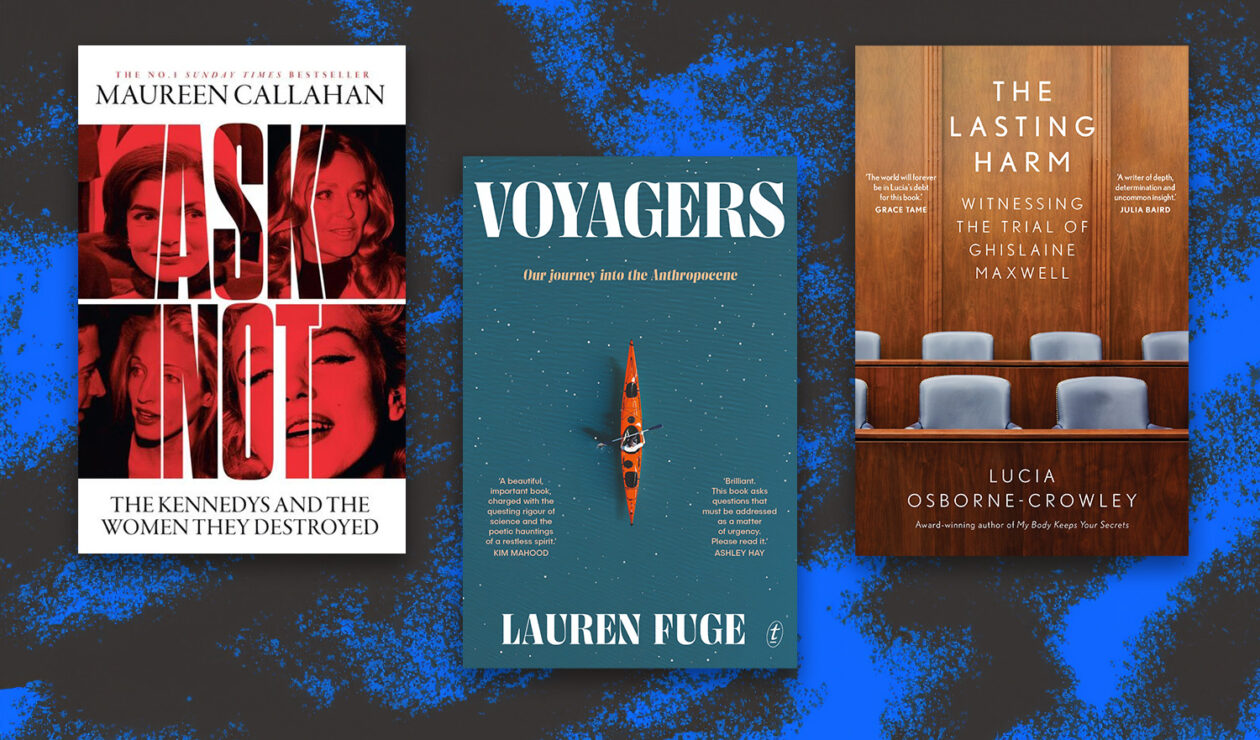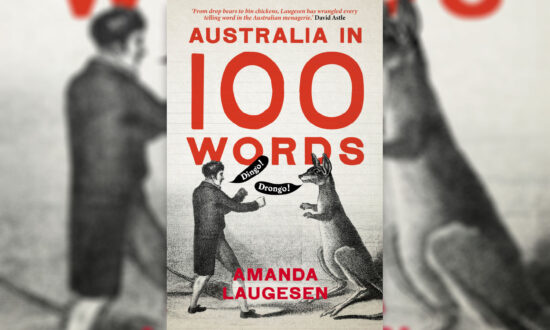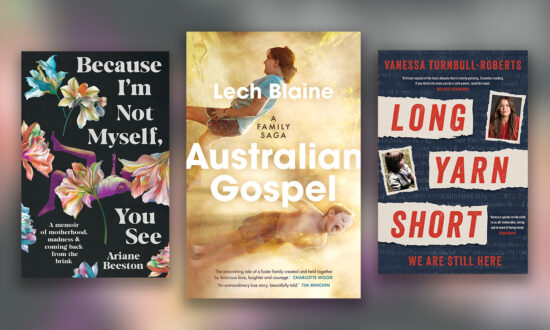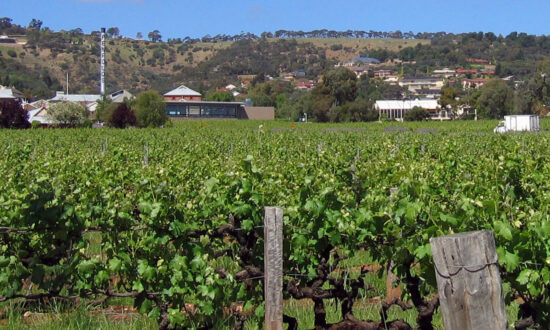“I’d long lived with a relentless pull towards the horizon, a compulsion to disappear into the unknown,” writes Adelaide writer Lauren Fuge, in the opening pages of Voyagers: Our Journey into the Anthropocene (Text Publishing). She’s watching humpback whales surface from her small boat on the west coast of Canada. Hearing their primal songs at night, she feels “as if I was eavesdropping across millennia, the ethereal melodies stirring some faint genetic memory deep inside me”. Gorgeous.
Fuge was working as a science writer in Adelaide when she “started to see that the world was on fire”. First, she interviewed climate scientists to help her understand what was happening. Then, aged 24, she quit her job and flew across the world, first to become a gardener on a remote island off the west coast of Canada.
“I had to throw myself out into the world to live life like humans should, with my eyes on the waves, my hands in the dirt, my body in the trees. I needed to relearn how to be.”
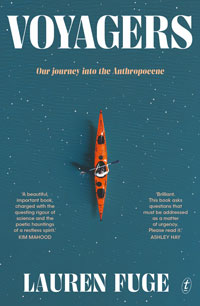 Her journey takes her to the Flinders Ranges, where she spends time with an Adnyamathanha community and visits Warratyi, a cave shelter where artefacts 49,000 years old were discovered, with the Adnyamathanha man who helped discover and excavate it in 2016. She visits old-growth temperate rainforests in Vancouver and the frontlines of forest blockades in Tasmania, where she meets a 24-year-old facing a maximum jail term of 25 years for stopping a coal train.
Her journey takes her to the Flinders Ranges, where she spends time with an Adnyamathanha community and visits Warratyi, a cave shelter where artefacts 49,000 years old were discovered, with the Adnyamathanha man who helped discover and excavate it in 2016. She visits old-growth temperate rainforests in Vancouver and the frontlines of forest blockades in Tasmania, where she meets a 24-year-old facing a maximum jail term of 25 years for stopping a coal train.
“If you think my actions are extreme, if you think this is crazy or too radical, then I don’t think you’re paying attention,” she warns.
She travels to the coastline of Norway, where her relationship ends and she reflects on the peopling of Scandinavia at the end of the ice age as an act of courage and adaptability. “We have faced up to worlds that are ending by adapting and changing our culture, using ingenuity, flexibility and a desire to not only survive, but see our descendants thrive.”
From West Antarctica, she brings alarming news of melting ice sheets, but also urges us to take positive lessons from Antarctica’s evolution from a continent of individual conquest to a place of collaboration and discovery, often “for the knowledge necessary to build our collective future”.
Humans’ relentless urge to explore, Fuge writes, has driven us to where we are… and now threatens to take us over the edge. She is scornful about the race to colonise space, or “The Third Age of Exploration”, calling it “a rejection of moral responsibility”.
A true act of exploration, she writes, is “not to fling ourselves off the crust of this planet but to imagine ourselves embedded within it”. That idea echoes throughout, from feeling “the artificial boundaries between us and everything else” dissolve in the “ancient landscapes” of the Flinders Ranges, to the observation from deep in a Canadian forest that humans, like trees, have “near infinite reciprocal relationships to the world around us”.
This book, which traces the history and trajectory of human exploration and adaptation alongside Fuge’s travels, is of course replete with terrifying facts. For example, the capacity of the West Antarctica Ice Sheet, which glaciologists believe is melting in a way we may have lost control of, to raise global sea levels by five metres. (I’ll spare you the statistics for the Eastern Ice Sheet.) But it also distinguishes itself with its determined, difficult optimism.
As she travels, Fuge continually asks: “How do we, as a species, chart a liveable course towards the horizon of our future?” Answers lie, it seems, in the kind of regrounding she models – along with treating the climate crisis as the emergency that it is. Paying attention is the first step, and this expertly observed, intimately inhabited and gorgeously written book invites us to do just that.
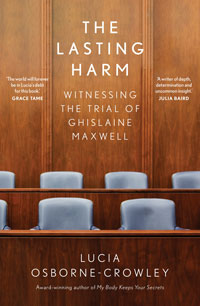 Journalist Lucia Osborne-Crowley’s The Lasting Harm: Witnessing the Trial of Ghislaine Maxwell (Allen & Unwin) is another exercise in expertly paying attention to an important issue we’re often tempted to shrink from: in this case, sexual abuse. Osborne-Crowley was one of just four journalists in the courtroom every day (but one) of the weeks-long trial of Maxwell. She got up at 2am every day to queue outside the courtroom and get a spot, and in the process befriended Julie K Brown, the Miami Herald journalist whose 2016 investigation of Jeffrey Epstein was, Osborne-Crowley believed, “the reason… this trial is happening”, and Vicky Ward, a Vanity Fair journalist who unsuccessfully tried to report allegations of sexual abuse against Epstein in 2002.
Journalist Lucia Osborne-Crowley’s The Lasting Harm: Witnessing the Trial of Ghislaine Maxwell (Allen & Unwin) is another exercise in expertly paying attention to an important issue we’re often tempted to shrink from: in this case, sexual abuse. Osborne-Crowley was one of just four journalists in the courtroom every day (but one) of the weeks-long trial of Maxwell. She got up at 2am every day to queue outside the courtroom and get a spot, and in the process befriended Julie K Brown, the Miami Herald journalist whose 2016 investigation of Jeffrey Epstein was, Osborne-Crowley believed, “the reason… this trial is happening”, and Vicky Ward, a Vanity Fair journalist who unsuccessfully tried to report allegations of sexual abuse against Epstein in 2002.
“For weeks after this, I will sit within two feet of Ghislaine Maxwell,” Osborne-Crowley writes of that first day. “I will get to know her mannerisms, her moods and her habits intimately.”
I was an admirer of Osborne-Crowley’s first two books, I Choose Elena and My Body Keeps Your Secrets, about her experience of sexual abuse and the effects of trauma more broadly. So I watched her reports on the trial as it unfolded – including her post-verdict interview with a juror who disclosed he had been sexually abused (which wasn’t reflected on his juror form), leading to Maxwell’s lawyers pushing for a retrial. This is covered in the book, too. And it shows how deeply connected she was to the case.
Osborne-Crowley was so personally invested in it, she was hospitalised with PTSD after the trial (which she also writes about). This intense identification with the victims and investment in the outcome didn’t just gain her a seat in the courtroom or exclusive interviews – though the book does open with another scoop, her interview a year after the trial with “Carolyn”, one of four victim-survivors to testify.
“Carolyn”, who was trafficked by Epstein and Maxwell between 2001 and 2004, agreed to talk to Osborne-Crowley, the first journalist she spoke to at length, because of her “trauma-informed” approach to journalism. This approach is reflected in her keen excavation of details that can seem counterintuitive or inconsistent to those unfamiliar with concepts like trauma or grooming – but are, in fact, textbook examples.
For instance, one victim-survivor was criticised by Maxwell’s defence team for not being able to distinguish between different episodes of abuse. “That’s what the brain does when something traumatic becomes routine: it finds it more and more difficult to find the edges of each memory, to split them up,” Osborne-Crowley explains. Prosecutor Maurene Comey draws on this in her closing argument, citing the defence’s own memory expert, who was forced to admit: “The core memories of trauma are solid. Peripheral details make it a little fuzzy, but those main memories, those events that are at the centre, are implanted.”
Osborne-Crowley’s incredible access, gained through sheer hard work and passion (epitomised when she endearingly greets the Epstein journalists whose work preceded hers as a fan) is impressive. She’s also a vivid, detail-oriented writer. All this, combined with the sensitivity and insight of her trauma-based approach, makes this a valuable and enlightening (if occasionally repetitive) book.
 Ask Not: The Kennedys and the Women They Destroyed (HarperCollins) similarly focuses on powerful men’s abuse and neglect of women. Maureen Callahan takes a very different tone to Osborne-Crowley’s as she breathlessly unpacks various sordid cross-generational stories of the Kennedy clan. The tabloid tone is not that surprising, as she is a columnist for the Daily Mail. (However, she has also written for the New York Times and Vanity Fair, which swayed me when I was deciding whether to read this book, after revelations from it were plastered all over the press.) I have to confess, from the first page, I was hooked.
Ask Not: The Kennedys and the Women They Destroyed (HarperCollins) similarly focuses on powerful men’s abuse and neglect of women. Maureen Callahan takes a very different tone to Osborne-Crowley’s as she breathlessly unpacks various sordid cross-generational stories of the Kennedy clan. The tabloid tone is not that surprising, as she is a columnist for the Daily Mail. (However, she has also written for the New York Times and Vanity Fair, which swayed me when I was deciding whether to read this book, after revelations from it were plastered all over the press.) I have to confess, from the first page, I was hooked.
Did you know Carolyn Bessette-Kennedy was reluctant to get into the plane piloted by her husband JFK Jr (which crashed and killed them, along with her sister) because he was still in flight training, wasn’t licensed to fly at night and had just had a cast removed from his ankle? Or that he didn’t yet know how to read or rely on his plane’s controls? Or that years earlier, he had nearly killed himself and a girlfriend kayaking in the open sea, which he didn’t know how to do?
Did you know a teenage girl was paralysed for life after Bobby Kennedy Jr’s brother Joe flipped a Jeep he was driving, packed with seven people (it seated four), as “joints were passed” and he “drove in circles before crossing into the other lane and into oncoming traffic”? Bobby Jr, the current presidential candidate (whose own chapter in the book is gobsmacking and well worth reading), was in the car, too. The judge, a college classmate of driver Joe’s uncle, said: “You had a great father and you have a great mother… Use your illustrious name as an asset instead of coming into court like this.” He then fined him $100 and let him go. The girl, Pamela Kelley, experienced lifelong pain. The year before she died, aged 65, of sepsis, she faced bankruptcy and the loss of her home.
I didn’t know that Bobby Jr was obsessed with trying to clear the cousin who was convicted, aged 15, of brutally murdering his neighbour of the same age, Martha Moxley. (The conviction was vacated in 2018, after the cousin had served 11 years of his sentence.)
You might know, as I did, about the infamous Chappaquiddick case, where Senator Ted Kennedy, drunk and driving with an expired licence, flipped a car off a bridge and left his passenger Mary Jo Kopechne to drown, crawling out of the car and returning to his hotel rather than calling emergency services or getting help nearby. The diver who pulled her body from the car said “she’d probably lived for at least an hour after the crash” and “had Ted gotten help”, she could have been saved.
You probably know that John F Kennedy cheated on his wife Jackie Kennedy constantly, including with young White House staff, and that he and his brother Bobby Kennedy had affairs with Marilyn Monroe. (The details are of course contested, and this book gives a version of them.) And that Joe Kennedy Sr had daughter Rosemary lobotomised and hidden away in an institution.
I was less interested in the stories I knew – particularly about the Kennedys and Marilyn – than those that were new to me. Most of all, though, I was convinced and horrified by the accumulation of damning details, and the pattern that emerges of a family of careless, privileged, entitled men. If this book is to be believed, the so-called Kennedy Curse – apart from the 1960s assassinations of JFK and RFK – seems self-inflicted.

Get InReview in your inbox – free each Saturday. Local arts and culture – covered.
Thanks for signing up to the InReview newsletter.
Voyagers, by Lauren Fuge, will be launched by Clare Peddie, deputy energy & environment editor of The Conversation, at Dymocks Adelaide on Wednesday, August 21. Bookings (here) essential.
Jo Case is a monthly columnist for InReview and deputy editor, books & ideas, at The Conversation. She is former bookseller at Imprints on Hindley Street and former associate publisher of Wakefield Press.
Support local arts journalism
Your support will help us continue the important work of InReview in publishing free professional journalism that celebrates, interrogates and amplifies arts and culture in South Australia.
Donate Here
